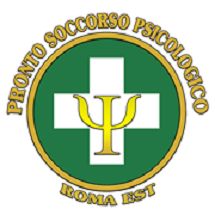
__________________________________________________
INTRODUCTION
To
my esteemed readers, welcome and read on a very difficult topic about
“FORGIVENESS” I have researched and found that many people suffer
psychological stress, depression and trauma because it is very difficult to
forgive those people that have “HURT THEM” therefore they continue suffering
psychologically.
Definition
of “FORGIVENESS”
It is an act of healing ONESELF by not giving revenge but instead the one that is hurt should show “LOVE” instead of hate.
If one cannot forgive he/she will keep memories of those who hurt or wronged them.
Keeping memories of those who you
call enemies will cause stress oriented diseases i.e. high blood pressure,
ulcers, cardiac arrest and even stroke.
I
therefore welcome my esteemed psychological colleagues, readers to read and
understand the importance of inter personal FORGIVENESS and practice it in your
day to day life.
FORGIVENESS

Why
should I forgive?
”The
only way to heal pain that will not heal itself is to forgive the person who
hurts us.”(Smedes)
“Forgiving
has the power to stop the return of the pain and frees us from the bondage to
the offender.”(Benson)
Religiosity
my affect the desire to forgive, but has not been shown actually to affect the
process or success to forgive family or close relationships. (Subkoviak)
Forgiveness
provides
Restoration of sense of personal power, freedom, moral living
·
Show respect for oneself-one who refuses to
forgive suffers twice
·
Move towards a less willful, less demanding,
less dogmatic self!
·
Acknowledge the difference between persons and
their deeds
·
Show respect for other as moral agents
Positive
change in affect and well-being
·
Release negative emotions (guilt, anger,
resentment, sadness, hostility, shame)
·
Improve self-esteem
·
Move beyond fear of rejection and fear of love
·
Move beyond fear of vulnerability
·
Move towards self-forgiveness
·
Free oneself from perpetuation of harmful
repercussions from injury
·
Increase openness to learning and insight
Improved
physical and mental health
·
Lower ones state of anxiety
Ø
Improvement of interpersonal relationships
Ø
Overcome alienation, isolation, loneliness
Ø
Move beyond fear of intimacy
Ø
Move into closeness (being liked and accepted
as who we are)
Ø
Move into intimacy (mutual self-disclosure)
Ø
Improve one’s dealing with other
interpersonal hearts
Ø
Restore integrity to ones relationship to others, and for believers to God
Ø
Restore and/or renew relationships
Ø
Free oneself to end or return away from
injurious relationships
Interpersonal
Forgiveness: Components of a process
Uncovering
phase
1.
Examination of psychological defenses and the
issues involved
2.
Confrontation of anger; the point is to release,
not harbor, the anger
3.
Admittance of, when this is appropriate
4.
Awareness of depleted emotional energy
5.
Awareness of cognitive rehearsal of the offense
6.
Insight that the injury party may be comparing
self with the injurer
7.
Realization that one self may be permanently
and adversely changed by the injury
8.
Insight into a possible altered “just world
“view
Decision
phase
9.
A change of heart/conversion/new insights that
old resolution strategies are not working
10.
Willingness to consider forgiveness as an
option
11.
Commitment to forgive the offender
Working
phase
12.
Reframing through role taking, who the
wrongdoer is by viewing him or her in context
13.
Empathy and compassion towards the offender
14.
Bearing/accepting the pain
15.
Giving a moral gift to the offender [taking
into account personal trust and safety]
Deepening
phase
16.
Finding meaning for self and others in the
suffering and in the forgiveness process
17.
Realization that self has needed others’
forgiveness in the past
18.
Insight that one is not alone (universality,
support)
19.
Realization that self may have a new purpose in
life because of the injury
20.
Awareness of decreased negative affect and,
perhaps, increased positive affect, if this begins to emerge, toward the injurer;
awareness of internal emotional release
Forgiveness
as Healing
It
is not surprising that many adult trauma survivors have a strong reaction to the
idea of forgiveness. After all, they have been seriously harmed by someone who
used their authority, power, size, age, etc. against a vulnerable child.
Often
the resistance to forgiveness has some roots in a misunderstanding about the
nature of forgiveness itself. The language we use suggests that forgiveness is
something which is “given” to the offender. This seems unjust if not
absolutely ridiculous-why should the victim give anything to the perpetrator?
Anyone
who been seriously harmed by another person can usually provide a large number
of reasons why the option of forgiveness will not be considered. They seem very
reasonable to the victim and others. [You might think of some of your reasons
right now and jot them down].
Imagine
for a moment you are involved in a serious car accident. You are sitting on a
red light and suddenly the car behind you runs into you. The driver of the car
is injured, and your arm is broken and you have some severe bleeding from a head
wound. Would you refuse to go to the hospital to have your arm put in a cast,
and to have some x-rays and stiches for your head wound?
Now
thin k for the reasons you had earlier for not forgiving the person who caused
you trauma? State those same reasons for the imaginary situation of your car
accident and the resulting broken arm and the head injury. Do your reasons make
sense? Quite often they sound rather silly when applied to physical injury; “I
won’t give that other driver the satisfaction of seeing me go to the
hospital.” Why should I have to get help when it’s her fault?” “The
other driver doesn’t deserve for me to seek treatment for my injuries.”
Forgiveness
is an important issue because trauma survivors are living with serious wounds
and deep pain. They need care and attention, and forgiveness is a process of
healing. Forgiveness is not something that is given to the perpetrator, but
something that is done to alleviate the wounded person’s pain and suffering.
Trauma
survivors have thoughts, feeling and behaviors that are directly related to
their childhood abuse and neglect. The perpetrator may or may not be around
anymore, but the wounds persist in adulthood, causing more pain. Forgiveness is
the process of changing the thoughts, feelings and behaviors of the injured
person in order to heal and live less painful and more satisfying life. So if
the word “forgiveness” causes difficulty, simply substitute the word “healing.”
To refuse to engage in the process of forgiveness is like saying, “I refuse to
heal.”
This
article has been researched by psychologist Isaya Wafula Kutoyi
Mobile
No. +254 727978041
Whatsapp
No. +254 791287265
__________________________________________________
COPYRIGHT 2019 - 2020
STUDIO DI PSICOTERAPIA DEL DOTT. GIANNI LANARI

Piazza Sempronio Asellio 7
( fermata METRO GIULIO AGRICOLA )
ROMA
P. Iva 06019411005 - Tel. +39 0622796355
ATTENZIONE
I componenti della rete del progetto "Pronto Soccorso
Psicologico Roma Est" non offrono cure, supporto o consigli
immediati per le persone in una crisi suicida.
Per tale tipo di emergenza chiamare il 118 o il 112.
Ogni componente della rete del "Pronto Soccorso Psicologico
Roma Est" contribuisce al progetto in maniera pienamente
autonoma ed è quindi responsabile individualmente -anche sul
piano legale- del proprio operato.